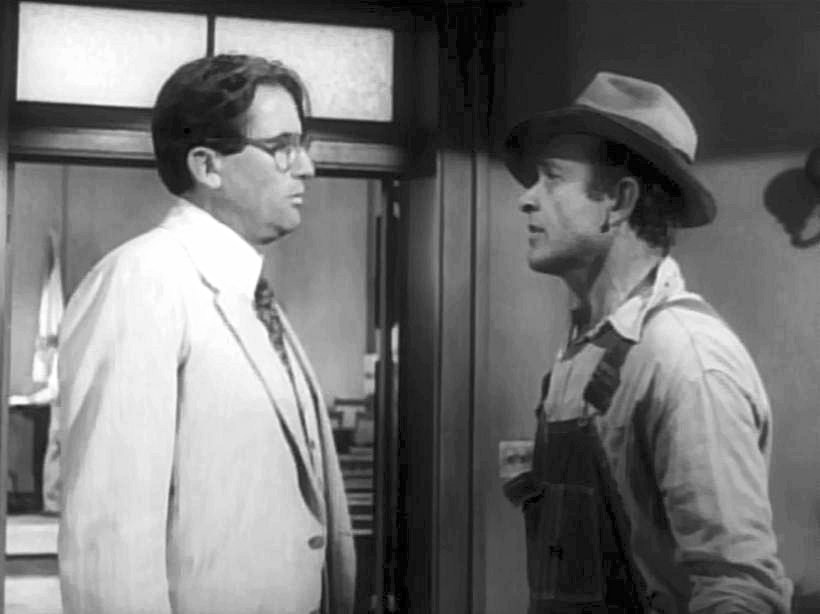This article has a set of discussion questions tailored for classroom use. Click here to download them. To see a full list of articles with discussion questions and other resources, visit our “Educational Resources” page.
The release of author Harper Lee’s long-awaited second novel, Go Set a Watchman, has sparked controversy even before hitting the shelves. Central among these controversies is the revelation that Watchman’s Atticus Finch, a celebrated character from Lee’s To Kill a Mockingbird, is portrayed as a harsh racist, more akin to the Ku Klux Klan than the defense against racism with which he is associated. As parents reevaluate naming their children after the character and others raise suspicions about the book’s publication, it is practically ensured that the text will be one of the most controversial publications this year. Yet, for others, the publication of Lee’s latest novel has provided the opportunity to air longstanding grievances that existed long before Go Set a Watchman – grievances that stand to change the way we think about To Kill a Mockingbird’s legacy.
Foremost among these criticisms are concerns about both novels’ depiction of racism, especially in light of characters like Atticus Finch. A recent op-ed written by Colin Dayan noted that To Kill a Mockingbird’s plot, traditionally praised as a stand against racism, contains more problematic elements in the way its black characters are presented. In Lee’s novel, Dayan argues, black people are either victims or are simply dragged “humbly in tow” behind white characters like Atticus. Characters like Tom Robinson, he argues, are primarily used to draw attention to the heroism of these white characters – to the point where many of the non-white characters are included “only to be helped or killed by whites.” Others, including acclaimed author Toni Morrison, have also drawn attention to the damaging “white savior” narratives upon which Mockingbird operates, presenting a reading of the work not often considered by white audiences.
While the dehumanized black characters in Mockingbird are certainly a problem, it may not be entirely the fault of the author. After all, Mockingbird is told largely from the perspective of a white child, a move Lee has said is grounded in her own experienced reality. The autobiographical nature of the book means that this white perspective certainly factors in prominently, which could be one reason the book exhibits the trends that Dayan describes. In some ways, then, establishing black characters like Tom Robinson as relatively dehumanized victims could have been central in building the worldview of a young white girl at the time, as Scout Finch is in the book. It could also be argued that the book may not have been as poignant if told from experiences and perspectives unfamiliar to the author. Personal writing is often incredibly powerful, and without its use in Mockingbird, the book may not have risen to prominence in the first place.
Regardless of author’s intent, however, Dayan’s points about the relatively dehumanized black characters still stands. In light of these points, it is necessary that we reconsider Mockingbird’s foundational role in educating about racism. For many students today, especially white students, reading To Kill a Mockingbird may act as a foundational early element of understanding racism. Within this educational process, characters like Atticus are too often held up as heroes, while texts focused on non-white characters fighting racism do not receive nearly the same focus. These trends are not isolated; in an op-ed for The Huffington Post, John Metta writes that discussions about racism in the United States are overwhelmingly considered through the feelings of white people – a trend certainly not helped by the “white savior” narratives like those in Mockingbird.
In this regard, countering the “white savior” narratives in Mockingbird necessitates that students be introduced to more varied representations. An excellent example would be Morrison’s books; works like Beloved and The Bluest Eye offer powerful anti-racist narratives from the experiences of non-white characters. Exposing students to these texts not only diversifies the experiences about which they are reading, but also helps counteract white-focused narratives that hinder discussions about racism. And while the legacy of Go Set a Watchman has not yet been cemented, it has become clear that white-centric accounts of racism like its predecessor can no longer act as the definitive source material on race.

